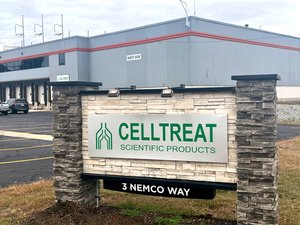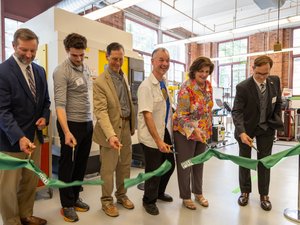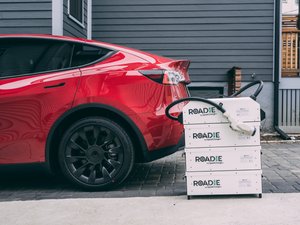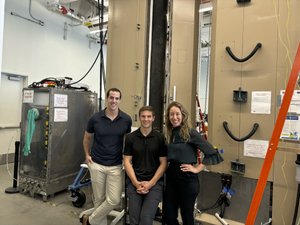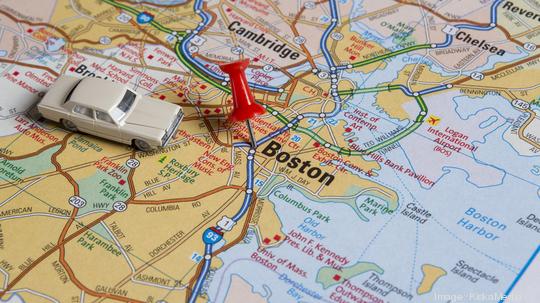
Whether utilizing the MBTA system, personal automobiles, car sharing apps, or even micro-mobility vehicles such as bikes or scooters, there are a multitude of ways to travel around Boston.
In 2015, the Massachusetts Department of Transportation reported about 774,000 daily trips are made via the subway, over 390,000 trips are made by bus, and 129,000 trips are made on the commuter rail.
In 2018, Governor Charlie Baker created the Commission on Future Transportation to research and make recommendations for transportation in the city based on changes in technology, the economy, and climate. As Boston is making plans to change the landscape of transportation, we highlighted nine companies working to make it happen whether through making wireless chargers for electric vehicles, rewarding safe driving with an app, or bringing the car repair shop to your office.
Zagster
Zagster is a firm believer in micro-mobility--personal vehicles that can reduce traffic and costs and increase eco-consciousness in our communities. By partnering with Zagster, cities can acquire pedal bikes, electric bikes, and scooters. Along with helping to obtain vehicles, Zagster also provides an operator to work with the fleet, and they create a digital presence for local outreach. The company was founded in 2007 by Jason Meinzer and Timothy Ericson. In February 2018, the company did a series C round of funding and raised $15 million, and in April this year, the company appointed industry veteran Dan Grossman as CEO.
Perceptive Automata
As the possibility of self-driving cars is becoming a reality, Somerville startup,Perceptive Automata, is focused on making these smart vehicles safer by analyzing human behavior. The company uses a sensor to collect data of vehicles interacting with pedestrians, manipulates the data, then show it to groups of common people in order to answer questions about the pedestrian’s level of awareness and intuition. After re-doing this process hundreds of times, the company developed a software so that self-driving cars can understand human behaviors and how to react to different scenarios. The company was founded by Sam Anthony and Sid Misra in 2015. Their series A funding round in October 2019 raised $16 million.
Zippity
The days of leaving your car at the repair shop and being stuck without transportation are over. With Zippity, the car repair shop comes to you. During work, Zippity brings their mobile garage to your office, so maintenance gets done, while you’re agonizing over those boring expense reports. In order to benefit from Zippity services, your employer needs to partner with the company, then you schedule and pay a car maintenance service – from oil to tire service – on Zippity’s online portal. Edward Warren founded the company in 2015. In October 2018, the company raised 2.6 million in seed funding.
Optimus Ride
Optimus Ride combines self-driving technologies, electric vehicles, and mobility-on-demand services to create an eco-conscious, self-driving vehicle technology. In the summer of 2017, the company was approved to test their vehicles in Boson’s Seaport district. The goal of Optimus Ride is to reach level four autonomy; requiring no driver attention for their autonomous vehicles. The company was founded by Albert Huang, Jenny Larios Berlin, Ramiro Almeida, Ryan Chin, and Sertac Karaman in 2015. They raised an $18 million Series A funding round led by Greycroft Partners in 2017.
Circulation
Circulation, founded in 2016, organizes transportation logistics for healthcare providers and their patients. If a patient cannot make it to their appointment due to a lack of transportation, the healthcare administrator can book a ride with Circulation’s ride ordering platform. This process also works if a patient is stuck at the hospital with no ride during discharge. The hospital staff doesn’t need to be the ones who book the ride, beneficiaries can dial their insurance providers and schedule rides through them as well. Circulation provides specialized vehicles depending on patient’s needs, such as wheelchair accessible transportation. Rides can be booked in advance--days, weeks, or months--or on demand. Jared Hawkins, John Brownstein, and Robin Heffernan are founders of the company. In 2017, the company raised a $10.5 million series A funding round. The company has also teamed up with Partners Healthcare in over 2,500 facilities in 40 states.
TrueMotion
Apps are usually the source for distracted driving. With the TrueMotion app, however, drivers can learn about their dangerous driving behaviors and how to fix it. The app tracks different vehicle movement signatures, driver identification, vehicle and human behavior, and crash data in order to give users insights into how they’re driving. TrueMotion was founded in 2012 by Brad Cordova, Joe Adelmann, and Scott Griffith, the former CEO of zipcar. The app also partners with insurance companies and rewards safe drivers with discounts on their premiums. In 2015, TrueMotion raised a $10 million series A funding round.
Witricity
WiTricity Corporation, led by a team of MIT Physicists, is taking their patented wireless electricity technology and applying it to electric vehicles. The newest goal of WiTricity is to develop a way to charge electric vehicles wirelessly. The technology is based magnetic coupled resonance--the process of transporting electricity using magnetic fields. The corporation was founded in 2007 by Andre Kurs and Marin Soljacic. Their last round of funding was in 2015; they raised a $5 million Series F funding round.
Wanderu
The days of frantically scrambling the Internet for the best deals on ground transportation are over. Waderu is the ‘KAYAK and ITA for buses and trains,’ where travelers can compare prices and book the most cost-effective tickets for their budget. Users can look up transportation options and schedules based on location. The software provides the option to use multiple bus and train services, in order to create the most streamlined journey possible. The company was founded in 2012 by Polina Raygorodskaya and Igor Bratnikov. They raised $5.6 million is a Series A funding round in 2014.
Superpedestrian
Founded out of MIT in 2013, Superpedestrian, one of BostInno's Startups to Watch in 2019, is a transportation robotics company with a focus on micro-mobility. Its first product, the Copenhagen Wheel, was designed to get more people biking in cities with hybrid e-bikes. The wheel is retrofitted to any bike and has a battery that lasts 1,000 charge cycles. In order to tackle intimidating hills when riding, the wheel also converts the energy lost when braking into an added boost of energy. With the app, riders can track their distance traveled and calories burned. Their new products include scooters, which will be available in August 2019. Led by Assaf Biderman, a graduate of MIT, Superpedestrian raised $16.5 million in a Series B round in May 2018.
